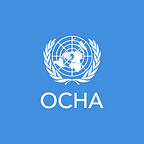Life was already on lockdown in Libya pre-COVID-19
By Jennifer Bose Ratka, Public Information Officer for the United Nations Office for the Coordination of Humanitarian Affairs (OCHA) in Tripoli, Libya
Little things often matter the most during isolation. For me, it’s my weekly ritual of buying strawberries at the only supermarket in the UN compound in Tripoli and making crepes on the weekends.
I speak to my family and friends more often. I have even started working out — something I have despised for years (and, let me be honest, deep down still do). These small things mean a lot to me, but at the same time they seem insignificant when I look at life in Libya with a bird’s eye view.
Conflict, insecurity and violence constantly overshadow the little joys in people’s lives. And when we thought things couldn’t get worse, the coronavirus pandemic further confined people who were already stuck in a ceaseless civil war.
During my first month in Libya, I thought I would never get used to the sound of shelling and gunfire. But after 10 weeks in the compound, I sadly have. The sound of bombs killing civilians just a few kilometres away every day has turned into white noise. At the beginning, the need to be constantly on high alert would rob me of my sleep; now I have grown accustomed to it.
Libyans had been living with a lockdown even before the COVID-19-related confinement. Ongoing fighting had already limited everyone’s free movement. When I arrived in Libya, having my sense of freedom taken away was perhaps the most difficult part to which I had to adapt. Now, many people globally can relate to this.
But while many countries are opening up, the situation in Libya will likely remain the same in the unforeseeable future. Nine years of war have left the country on the brink of collapse. Continuous fighting is increasing humanitarian needs, with at least 58 civilians killed and 190 wounded in the past two months. Close to 1 million people remain in need of assistance across Libya. This includes almost 400,000 displaced Libyans who had to flee from violence. Particularly in the last year, the rates of people returning home across Libya have been negligibly low.
In my two and a half months in Libya, I was able to leave the compound only once. Last week, I witnessed a distribution of relief items to recently released refugees who had been living in inhuman conditions in detention. The experience was bitter-sweet.
While the move to free refugees, asylum seekers and migrants from the dire living conditions is a positive outcome, many of them do not know what lies in store for them. More than 650,000 migrants and refugees remain in Libya, many of whom face arbitrary detention, gender-based violence, forced labour, extortion and exploitation, particularly those in detention centres and urban communities in conflict-affected areas.
The realization that not even a global pandemic creeping silently through the country can bring this nation and foreign decision makers closer to a decision to end the conflict is heartbreaking. Instead, the conflict has intensified as aid agencies are desperately looking for ways to reach the people most in need of assistance amid the fighting.
The conflict has had a crippling effect on the once wealthy country and left it in a state of dichotomy on many fronts. The beauty of its people versus the cruelty of the conflict. Libya’s wealth of resources versus unaffordable essentials such as food and medicine. Insecurity forcing people to flee from their homes versus migrants and refugees continuing to come in, many hoping to cross the Mediterranean Sea to find a better future (more than 1,000 people attempted the perilous journey to Europe in May alone).
I joined OCHA’s Libya operation after having spent three years deploying to various emergencies worldwide. Despite being slightly terrified of permanently moving to a war-torn country, I was looking forward to communicating about a crisis many people know little about. The announcement was met by surprise by many of my friends. While some had troubles differentiating between Libya and Liberia, I could see many going blank when trying to gauge what was happening in the North African country. I can’t fully blame them — most media reports on Libya focus on the political rather than the humanitarian situation. And with COVID-19 having taken over most headlines, people in Libya are further pushed out of the spotlight. But the world must not forget them.
In Libya, COVID-19 and ongoing conflict are a deadly combination that has compounded the suffering of the most vulnerable people and is stretching the already under-resourced and fragile health system. The conflict provides a perfect breeding ground for the spread of the pandemic.
While the situation seems hopeless to many, aid agencies are here to stay. Humanitarian partners continue to deliver urgent assistance to people in need, and we have reached more than 170,000 people with assistance since the beginning of the year.
We delivered essential medical kits to hospitals and health facilities throughout Libya, we informed people how to protect themselves, and we trained over 3,000 health and non-health workers on COVID-19. Although the pandemic made our operations more difficult and more expensive, humanitarian agencies also continue to reach hundreds of thousands of people with regular distributions of food and relief items, such as soap, mattresses and blankets.
And while none of these things may be able to resolve the conflict in the long term, they provide a lifeline to the many people who continue to need help. Because sometimes, it’s the little things that matter the most.
